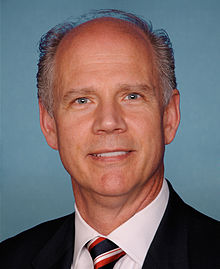
With the goal of improving U.S. threat preparedness, U.S. Rep. Daniel Donovan (R-NY), who serves on the House Homeland Security Committee, recently introduced legislation to help fight potential terror attacks in urban areas and in cyberspace.
Donovan recently introduced the Terrorist Asset Seizure Reform (TASR) Act, H.R. 5308, which would seize terrorist assets and direct them to a homeland security grant program to benefit cities considered at high-risk of an attack. In addition, the Cyber Preparedness Act, H.R. 5459. sponsored by Donovan, would help improve communication on cybersecurity between federal, state and local authorities.
Donovan, the chairman of the House Subcommittee on Emergency Preparedness, Response and Communications, acknowledged that the United States will never be fully prepared for every potential terrorist attack. What is helpful, he said, is that the intelligence information being gathered by national law enforcement agencies and from U.S. allies is being shared with state emergency management departments, state police and local law enforcement, who are acting on that information.
“We’re evolving every single day,” Donovan told Homeland Preparedness News in a recent interview. “We are taking the measures that are sometimes visible to citizens and many measures that are not visible to our citizens in protecting our infrastructure and hard targets.”
The TASR Act would address such needs by providing cities with more funding to prevent, protect against and respond to acts of terrorism.
“Our enemies, whether they are state terrorist organizations, individuals or non-state organizations like Hamas, they hate America, they want to destroy America, and they use America’s financial institutions to fund their terrorist activities against our country,” Donovan said.
When the U.S. targets a country or individual with terrorist ties, financial institutions must freeze any assets associated with their accounts. U.S. banks, however, are required to continue paying interest on all frozen accounts.
The TASR Act calls for confiscating the interest accruing in those frozen accounts, as well as seizing the frozen principle of terrorists or foreign terrorist groups one year after the accounts are blocked. Seized assets would then be redirected to the Urban Areas Security Initiative, a homeland security grant program that helps high-risk cities nationwide fund anti-terror efforts.
“It is critical now because the president’s proposed budget for fiscal year 2017 cuts those grant monies in half,” Donovan said. “But through some advocacy by myself and some others, the proposed House budget and proposed Senate budget restores those grants.”
Bolstering the nation’s cybersecurity is another critical component of national defense.
Donovan’s Cyber Preparedness Act would improve the sharing of cybersecurity intelligence between federal, state and local officials.
The bill would allow representatives from state and urban fusion centers to operate out of the Department of Homeland Security’s National Cybersecurity and Communications Integration Center (NCCIC). The fusion centers, created after the Sept. 11, 2001, attacks, are state and urban area centers that gather and share threat-related information with support from DHS. The NCCIC shares information among federal agencies.
Donovan said that the bill also clears up confusion by clarifying that homeland security grants can be used to fund state and local cybersecurity initiatives.
Donovan, who represents the 11th District of New York, including Staten Island and South Brooklyn, is also a co-sponsor of the Countering Terrorist Radicalization Act, H.R. 5471. Recently passed by the House, the legislation contains a package of three bills that strengthen security and prevent Americans from becoming radicalized. The legislation now sits with the Senate.
One aspect of the bill, called the Amplifying Local Efforts to Root out Terror Act, authorizes the DHS to expand its work with nearly 80 fusion centers to quickly identify suspicious activity.
The Combating Terrorist Recruitment Act would require DHS to expand on its efforts to counter the social media propaganda used by terrorist organizations to recruit and radicalize potential operatives in the U.S., while the Counterterrorism Advisory Board (CTAB) Act would strengthen the board by more effectively weaving together intelligence, operations and policy to fight terrorism. The CTAB is the main counterterrorism decision-making entity at DHS.

